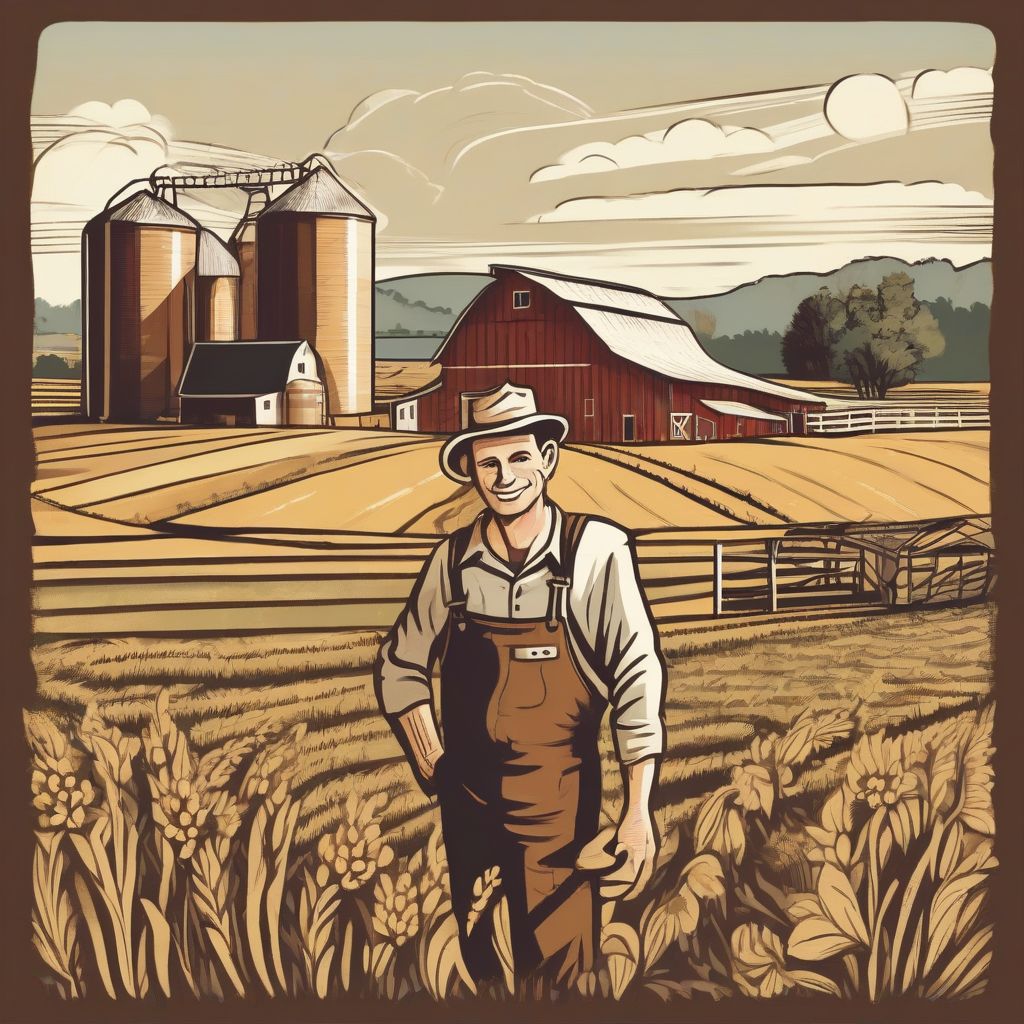Running a farm or ranch is tough work, and protecting your livelihood is crucial. That’s where State Farm insurance comes in. But what exactly are State Farm insurance quotes, and how can they help you safeguard your hard work?
This guide will walk you through everything you need to know about State Farm insurance quotes, from understanding the basics to getting the best possible coverage for your agricultural operation.
Understanding State Farm Insurance Quotes
Let’s start with the basics. An insurance quote is an estimate of how much you’ll pay for an insurance policy. Think of it like getting a price check before making a purchase.
When you request a State Farm insurance quote, you’ll provide information about yourself, your farm or ranch, and the type of coverage you need. State Farm will then use this information to calculate your personalized quote.
Why State Farm for Your Farm or Ranch?
State Farm is a well-known and trusted insurance provider with a long history of serving farmers and ranchers. Here’s why they might be a good fit for your agricultural insurance needs:
- Specialized Farm and Ranch Coverage: State Farm offers insurance policies specifically designed for agricultural operations, covering everything from your home and property to your livestock and equipment.
- Local Agents: With agents across the country, you can connect with someone who understands the unique challenges farmers and ranchers face in your area.
- Financial Stability: State Farm is a financially sound company, meaning they’ll be there when you need them most to pay out claims.
What Does a State Farm Insurance Quote Cover?
State Farm offers a range of coverage options for farmers and ranchers. Your quote will depend on your specific needs and the types of coverage you choose. Here are some common types of farm and ranch insurance:
Farm and Ranch Property Insurance
This type of coverage protects your physical assets, including:
- Your Home: Coverage for your farmhouse in case of fire, theft, storms, and other covered perils.
- Barns, Outbuildings, and Silos: Protection for your farm structures and storage facilities.
- Farm Equipment and Machinery: Coverage for tractors, combines, irrigation systems, and other essential equipment.
Livestock Insurance
Protect your livestock from unexpected events like:
- Disease: Coverage for losses due to disease outbreaks affecting your animals.
- Theft: Reimbursement for stolen livestock.
- Natural Disasters: Protection in case of severe weather events that harm or kill your animals.
Farm Liability Insurance
This type of coverage protects you financially if you’re held responsible for injuries or damages to others:
- Bodily Injury: Coverage if someone is injured on your property.
- Property Damage: Protection if your operations cause damage to someone else’s property.
- Product Liability: Coverage if someone is injured or becomes ill from a product you produce and sell.
 Farm Insurance
Farm Insurance
Factors Affecting Your State Farm Insurance Quote
Several factors can influence the cost of your State Farm farm or ranch insurance quote:
- Location: Your farm’s location plays a role, as areas prone to natural disasters or with higher crime rates might see higher premiums.
- Size and Value of Your Operation: Larger farms with more assets generally require more coverage and thus have higher premiums.
- Types of Coverage Selected: The more coverage you choose, the higher your premiums will be.
- Claims History: A history of filing claims can lead to increased premiums.
- Deductible Amount: Choosing a higher deductible (the amount you pay out of pocket before coverage kicks in) can lower your premiums.
Getting a State Farm Insurance Quote
Ready to explore State Farm insurance options for your farm or ranch? Here’s how to get a quote:
- Contact a Local State Farm Agent: You can find a local agent on the State Farm website or by searching online.
- Provide Information About Your Operation: Be prepared to share details about your farm’s size, location, assets, and the type of coverage you’re seeking.
- Review and Compare Quotes: Once you receive your quote, take time to review it carefully and compare it to other insurance providers to ensure you’re getting the best value and coverage.
Tips for Getting the Best State Farm Insurance Quote
- Bundle Your Coverage: Combine your farm or ranch insurance with other State Farm policies, such as auto or home insurance, to potentially save money.
- Ask About Discounts: Inquire about any available discounts, such as those for safety features on your property or for being a long-time State Farm customer.
- Maintain a Good Credit Score: A good credit history can sometimes lead to more favorable insurance rates.
- Review Your Coverage Regularly: It’s a good practice to review your coverage annually or whenever your farm operation undergoes significant changes to ensure you have adequate protection.
Common Questions About State Farm Insurance Quotes
Here are answers to some frequently asked questions:
Q: How accurate are State Farm insurance quotes?
A: State Farm strives to provide accurate quotes based on the information you provide. However, the final premium may vary slightly once they have a complete understanding of your needs and risk factors.
Q: Can I customize my State Farm insurance coverage?
A: Yes, State Farm offers flexible coverage options. You can work with your agent to customize a policy that fits your specific farm or ranch needs.
Q: How do I file a claim with State Farm?
A: You can file a claim online, through the State Farm mobile app, or by calling their 24/7 claims hotline.
Securing Your Future with State Farm Insurance
Your farm or ranch is more than just a business; it’s your livelihood and legacy. Protecting it with the right insurance coverage gives you peace of mind knowing you’re prepared for the unexpected.
While State Farm is a reputable option, it’s always wise to shop around and compare quotes from multiple insurers to find the best fit for your individual needs and budget. Remember, informed decision-making is key to securing the future of your agricultural operation.